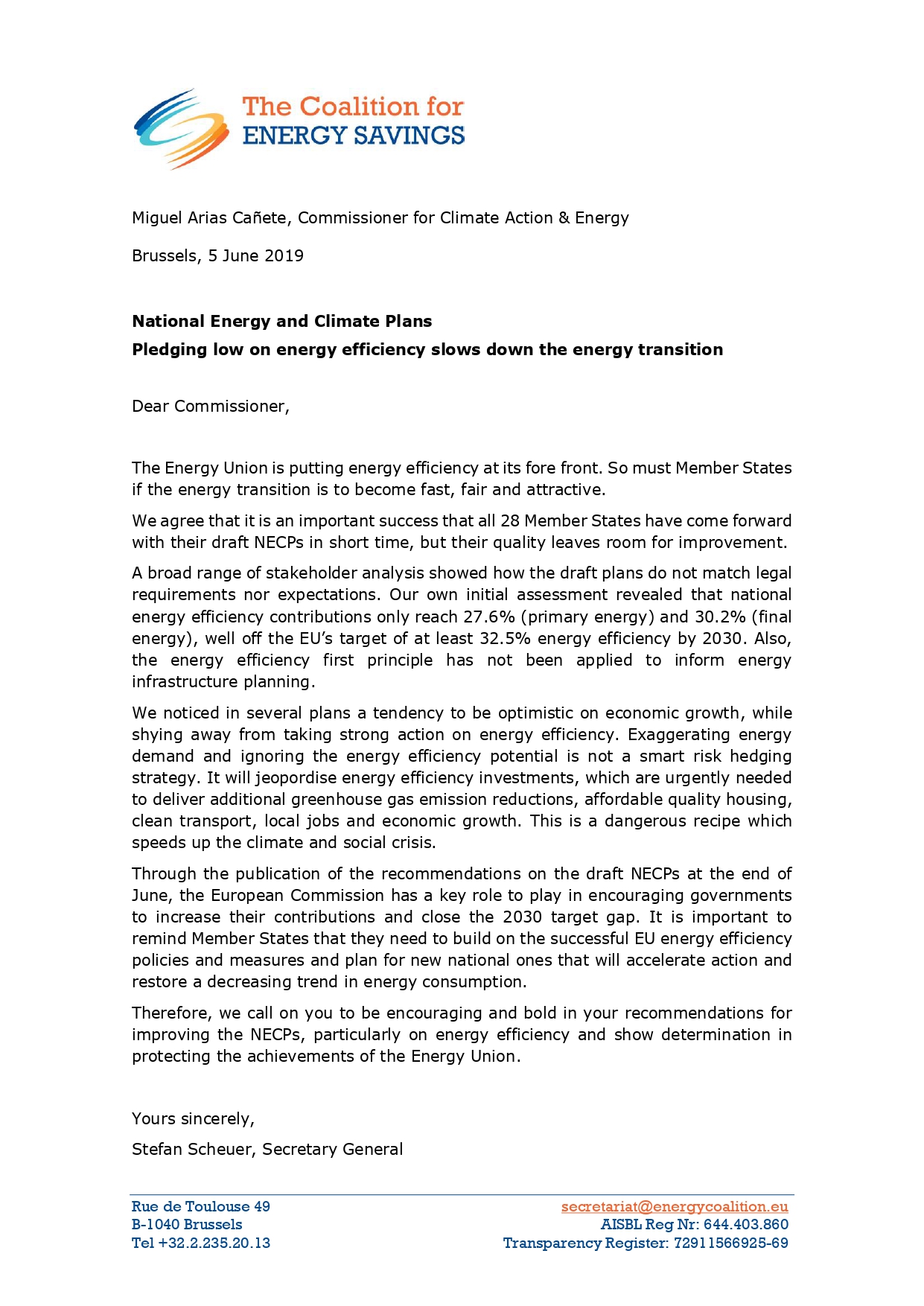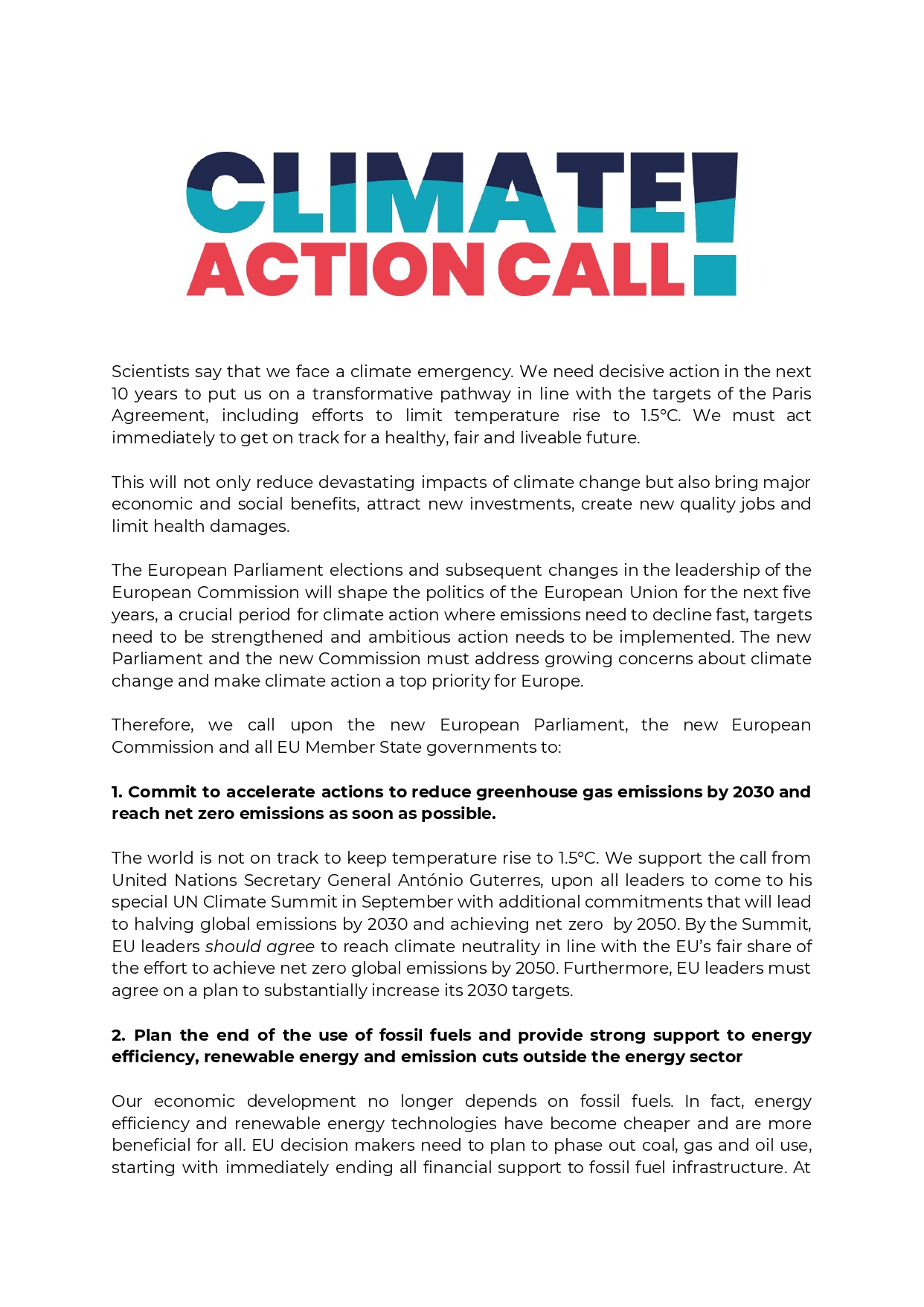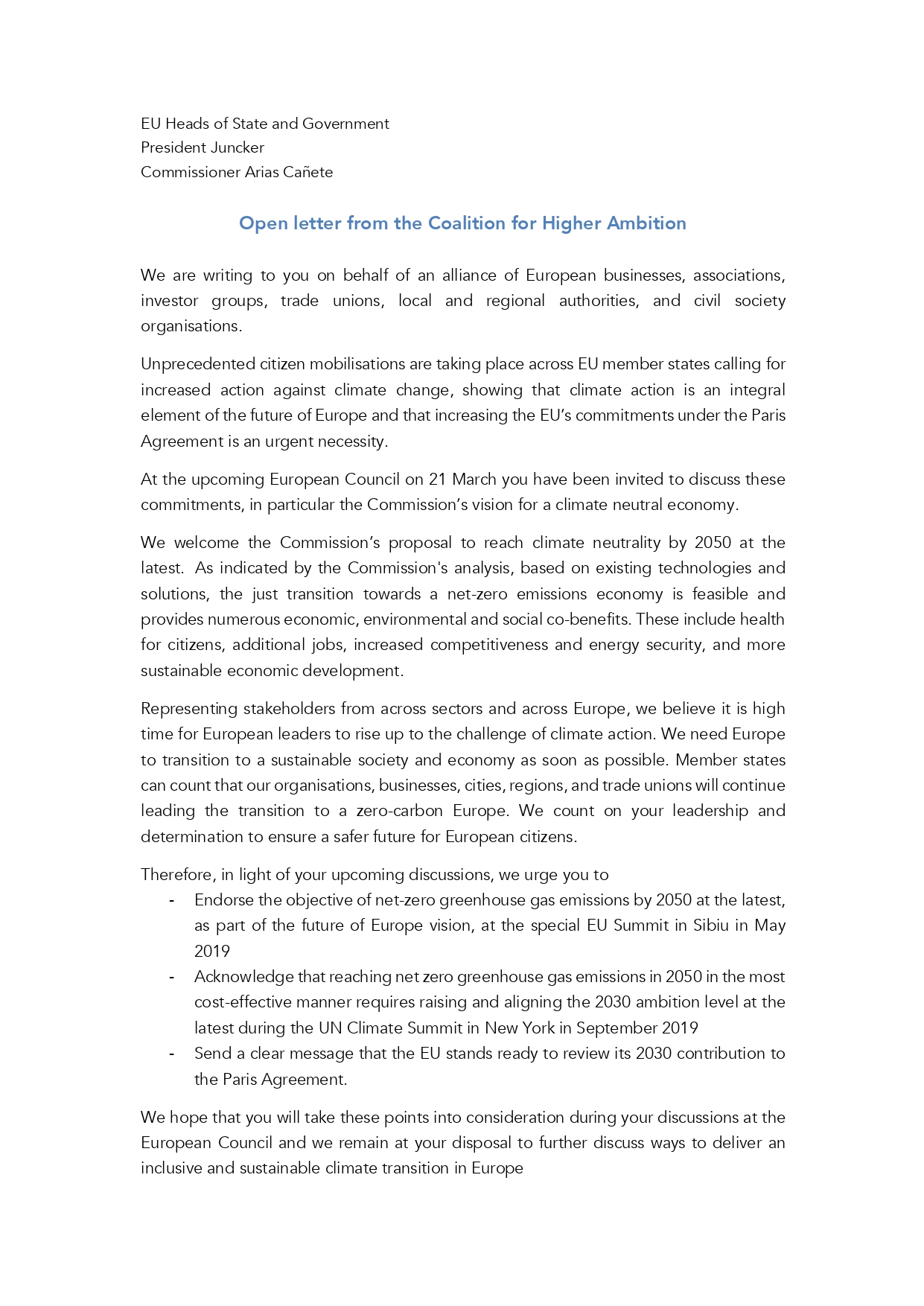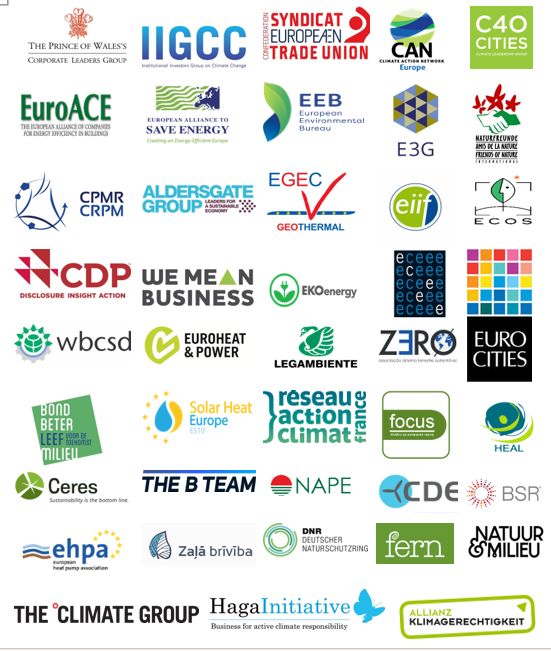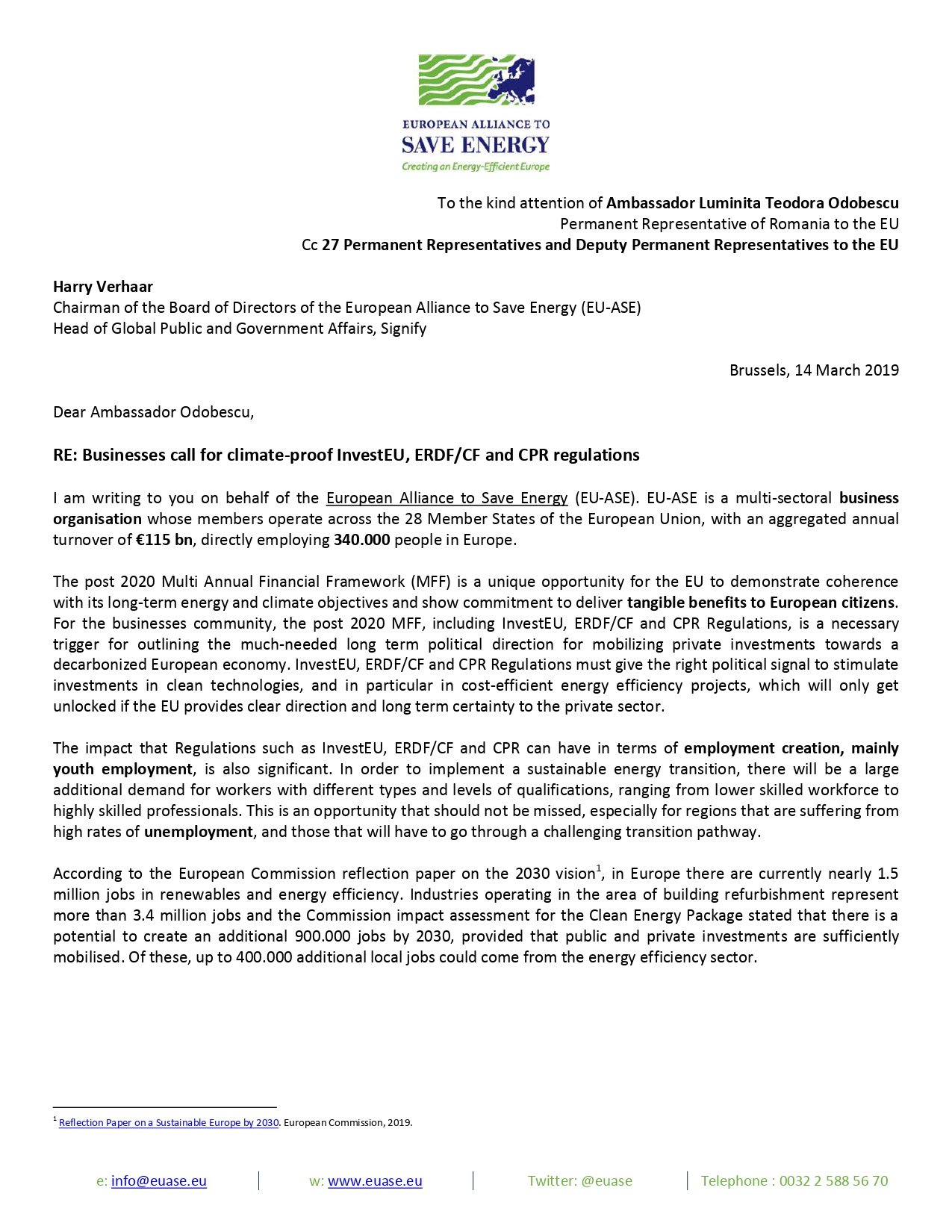Business Alliance call for urgent action on the transition to a Climate Neutral Europe
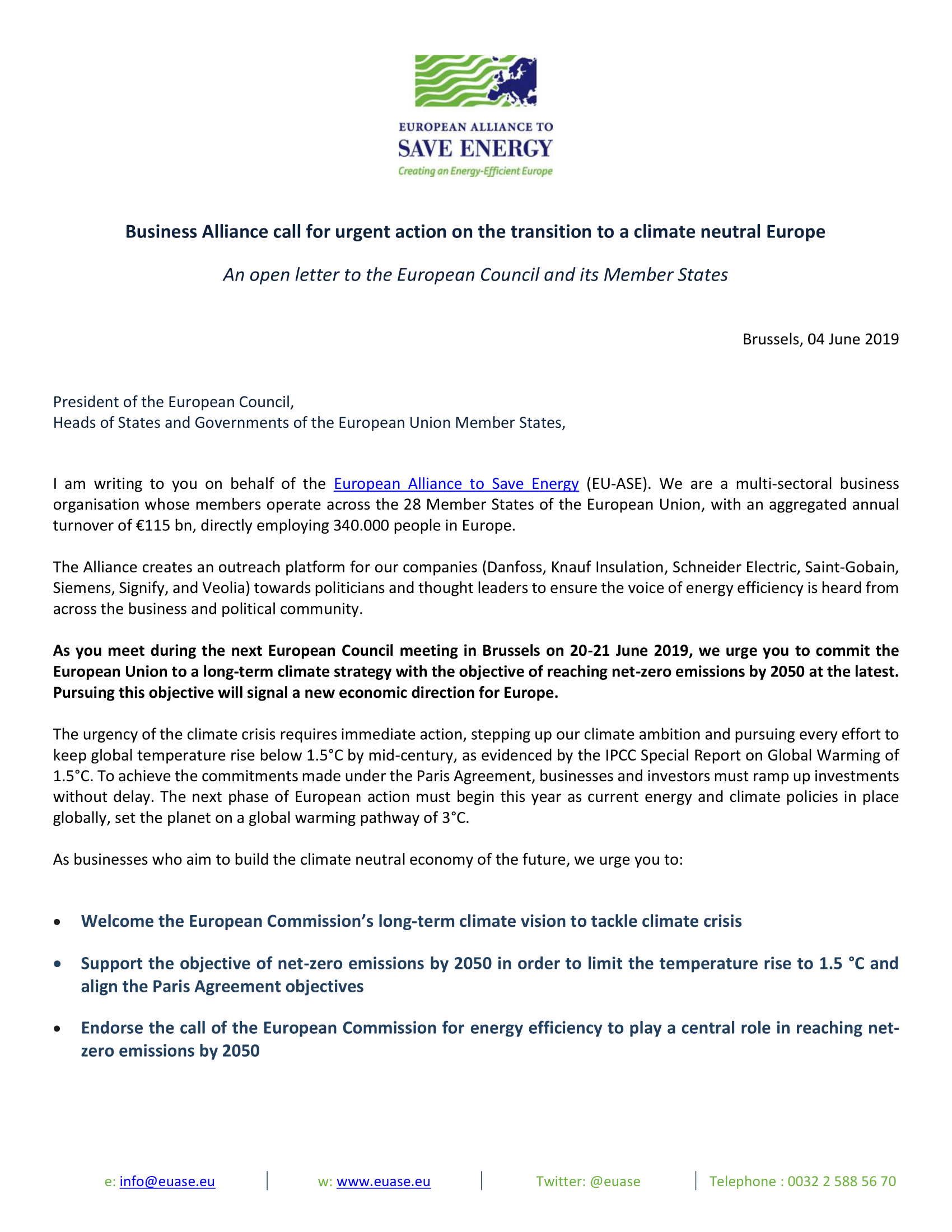
Brussels, 19 June 2019
President of the European Council,
Heads of States and Governments of the European Union Member States,
I am writing to you on behalf of the European Alliance to Save Energy (EU-ASE). We are a multi-sectoral business organisation whose members operate across the 28 Member States of the European Union, with an aggregated annual turnover of €115 bn, directly employing 340.000 people in Europe.
The Alliance creates an outreach platform for our companies (Danfoss, Knauf Insulation, Schneider Electric, Saint-Gobain, Siemens, Signify, and Veolia) towards politicians and thought leaders to ensure the voice of energy efficiency is heard from across the business and political community.
As you meet during the next European Council meeting in Brussels on 20-21 June 2019, we urge you to commit the European Union to a long-term climate strategy with the objective of reaching net-zero emissions by 2050 at the latest. Pursuing this objective will signal a new economic direction for Europe.
The urgency of the climate crisis requires immediate action, stepping up our climate ambition and pursuing every effort to keep global temperature rise below 1.5°C by mid-century, as evidenced by the IPCC Special Report on Global Warming of 1.5°C. To achieve the commitments made under the Paris Agreement, businesses and investors must ramp up investments without delay. The next phase of European action must begin this year as current energy and climate policies in place globally, set the planet on a global warming pathway of 3°C.
As businesses who aim to build the climate neutral economy of the future, we urge you to:
- Welcome the European Commission’s long-term climate vision to tackle climate crisis
- Support the objective of net–zero emissions by 2050 in order to limit the temperature rise to 1.5 °C and align the Paris Agreement objectives
- Endorse the call of the European Commission for energy efficiency to play a central role in reaching net-zero emissions by 2050
- Consider Energy Efficiency First as a basis of the European long term strategy and the main driver of the transformation towards a fossil–free energy system
- Welcome the call for higher buildings’ renovation rates and the recognition of the role that digitalisation and near zero-emissions buildings will play in the transition
- Acknowledge the need for a just transition that leaves no one behind
As business and investor leaders who aim to build the climate neutral economy of the future, we urge you agree the necessary policy foundations, notably the climate neutrality by 2050 at the latest and set the direction of travel that will provide us with the clarity and confidence to act.
We wish you a fruitful meeting and remain at your disposition for further discussion on this strategic topic.
Yours sincerely,
Monica Frassoni
President of the European Alliance to Save Energy (EU-ASE)
In a fast-changing political and economic environment, 2025 was a year of continued efforts to strengthen security, stability, and competitiveness for European businesses.
Throughout the year, our work demonstrated that energy efficiency is not only essential to achieving climate goals, but also a key driver of innovation, energy independence and sustainable long-term growth across Europe.
Strong engagement with policymakers, combined with the successful organisation of the 4th European Energy Efficiency Day, highlighted the importance of collaboration and dialogue in advancing shared objectives. Partnerships across sectors and institutions remained central to delivering impact and shaping effective energy policies.
Looking ahead to 2026, we will intensify our efforts to secure the regulatory certainty that can accelerate the energy transition, while providing businesses with the investment confidence they need and strengthening Europe’s competitiveness.
Read the full Activity Report here.


